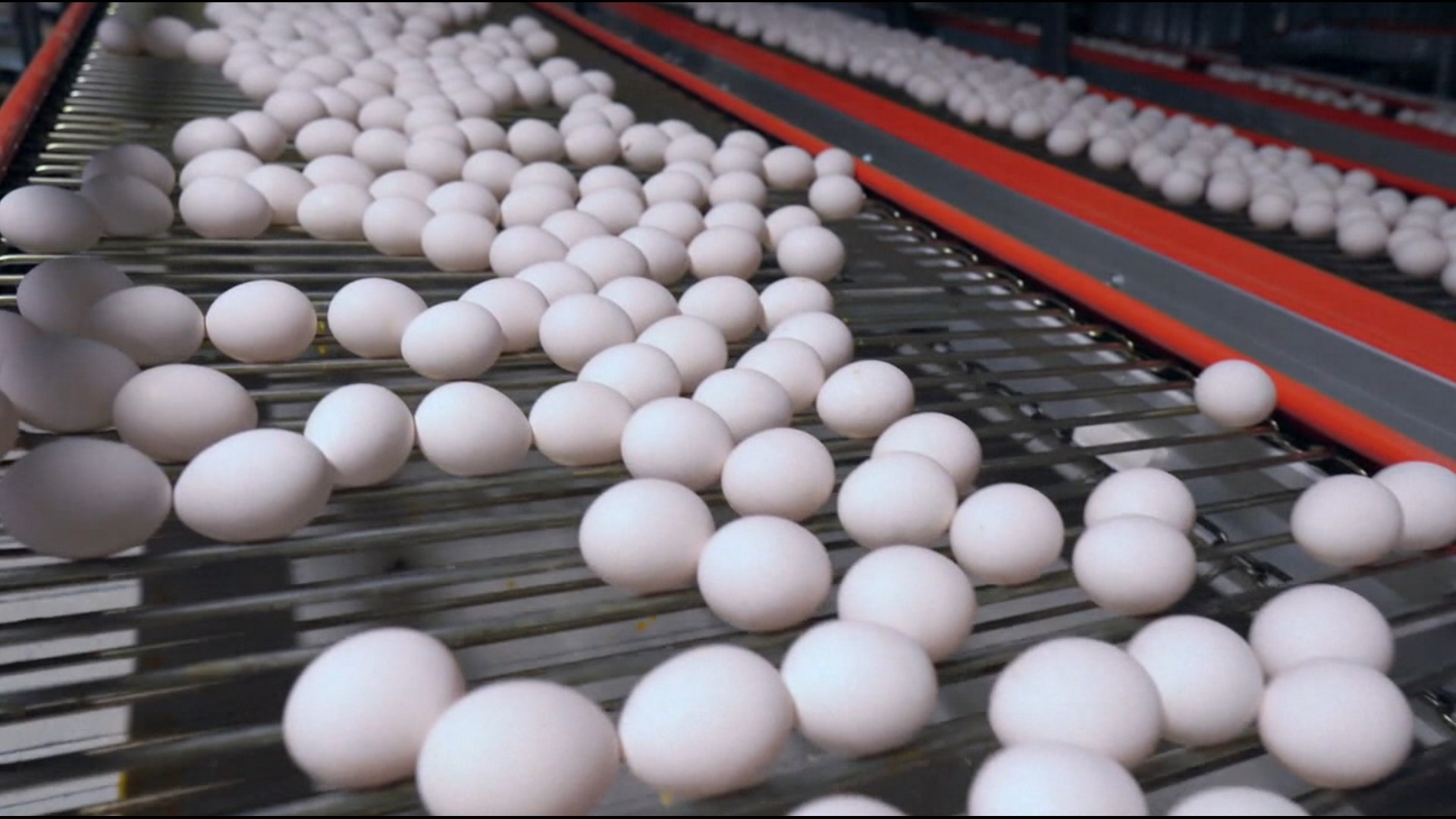MERCERSBURG, Pa. — An aggressive strain of avian flu is wiping out entire flocks of birds across the country, from commercial farms to backyards.
The current epicenter of the avian pandemic is Pennsylvania, where more than 215,000 birds have been affected in the last month, according to data from the USDA.
The virus has wreaked havoc on the egg supply and caused price hikes and shortages.
A new farm in Franklin County is working to ease those shortages by providing a major source of eggs for the entire Northeast region.
Blue Springs Egg Farm in Mercersburg brought in its first egg-laying hens in November. The facility now has 300,000 hens, with plans to ramp up production. By 2025, they expect to produce more than 15 million eggs per week and increase Pennsylvania’s egg supply by 25%.
“There’s no shortage here. The demand is overwhelming right now,” said Environmental Health & Safety (EHS) engineer Derek Stoy.
Despite the high demand for eggs, avian flu remains the top threat to the $160 million facility.
The facility maintains strict biosecurity measures, such as spraying disinfectant spray on the shoes of truck drivers and on their gas pedals and brakes before entering. Vehicles also have to drive through a disinfectant pool. Other visitors must don full-body protective suits before walking on the property.
“We've always had a very strict biosecurity program but it's definitely making us focus on making sure we're protecting our hens and keeping any diseases, especially influenza, out,” said farm production manager Russell Phenicie.
To limit exposure to avian flu, much of the facility is automated. Cage-free hens lay eggs on a tilted floor that rolls eggs straight to a conveyor belt and eventually into an egg carton.
“99.9% of the eggs, when the customer goes in the grocery store and picks them up, they’re the very first person that’s touched that egg,” Phenicie said.
The facility is also built to discourage waterfowl from landing nearby and possibly bringing avian flu with them.
“All our retention ponds for stormwater drain rapidly so we do not have any longstanding water here. So the geese that live here and the migratory geese shouldn’t be stopping by,” Stoy said.
The facility is one of the largest single egg-producing farms in the Northeast. When it ramps up to full capacity, affordable eggs may be on the menu again.

